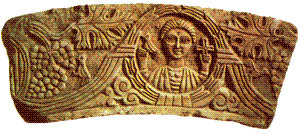Lumpenproletariat
Veteran Member
- Joined
- May 9, 2014
- Messages
- 2,714
- Basic Beliefs
- ---- "Just the facts, ma'am, just the facts."
Did Jesus have to "beam down" only to Judea-Galilee and nowhere else?
"connection"?
Have Jews "torched any connection" to the OT by forsaking the rituals of animal sacrifice which are central to the Mosaic Law?
How about this Old Testament "connection": the prophet Elisha summoned 2 she-bears out of the woods to rip apart 42 children who had mocked him for being bald-headed (II Kings 2:23-24), and yet Jews and Christians today do not apply this punishment to children who are disrespectful to bald-headed prophets. So have they "torched" the Old testament by not upholding this OT "connection"?
What are all the possible "connections" -- to this or that -- established as prerequisites to addressing the "Reasons to reject Christianity"?
Does the OP provide a list of all these required "connections" somewhere?
To that particular person in 30 AD who did the miracle acts, yes. Not necessarily to the name per se, which was a common name in Judea-Galilee-Palestine. Isn't Christianity "tied to" that reputed founder of the Church (or the cults leading up to the Church) in the first century? Was there a qualifier in the OP disconnecting our topic from that 1st-century event, or that historical person? and saying "Jesus" and "God" should not appear together in the same phrase or sentence?
You mean anything not mentioned explicitly is "irrelevant"? Are wars and famines irrelevant? It isn't necessary to enumerate all the things which might be relevant in order to make a point. That Jesus in 30 AD had power, which he showed, and is important does not imply that everything else is "irrelevant" because it's not mentioned. This one point does matter, that the Jesus person had power, but saying it does not then make everything else irrelevant.
If you want to emphasize the importance of something else, like Yahweh or the Trinity, then go ahead and explain its importance. There are many relevant matters I'm not mentioning, like global warming and so on. I'm not saying they are "irrelevant" by not mentioning them.
Perhaps. You're saying it would have been wrong for him to have beamed down to India instead of Judea? I'm not saying where he should have beamed down to, but you seem to be saying it would have been inappropriate for him to beam down in the wrong place. How do you decide what is the right or wrong place for him to beam down to? Why are you making these dogmatic judgments about where the "Jesus God" should have beamed down to?
He had to be somewhere, didn't he? Can't we speak of someone and say he was important in some way without making a religion out of his location? Why is it necessary to insist that Jesus (or God) would have made a mistake to choose India as the location? Why couldn't that question be left unanswered, along with a few million other interesting questions?
If you're crusading for the superiority of Judea over India or Malaysia or Uzbekistan, as the location God must choose, you're free to expound on that and explain how God makes such choices. No doubt there are many theories about what God should choose, including choices more important than which location to "beam down" to. How many extended Walls of Text do you demand for taking account of all the possible choices God might make and explaining in each case why this choice had to be better than that one?
It was made clear in my first and second posts, back on page one, when I refuted the first and second of the 120 (122) "Reasons." I referred there to the miracle acts of Jesus, in Judea/Galilee, in 30 AD, and why it's reasonable to believe these events happened.
From the beginning it was clear that my discussion was about the event in about 30 AD, happening in Galilee-Judea, which event was essential to what "Christianity" is about. But my point does not include or exclude any requirement that it had to be at this location. I did speculate at least once about the possibility that it might have happened elsewhere, like India. So I don't rule out that possibility, but if someone else does rule it out and makes the Galilee-Judea location mandatory, it doesn't contradict my point.
So I'm not disagreeing with you that it was vitally important for God to choose Judea as the location. Maybe you're right that he had to choose that location. If there are reasons why he had to make that choice, you can give us those reasons. It's not my place to give reasons for your belief that God had to make a certain choice about something. Maybe God makes many choices without our knowing the reasons for them. But when you claim to know the reason for one of his choices, you can give it to us.
I'm sure (maybe just a basic instinct) that God does not ask us to believe anything irrational, i.e., something contradicted by reason or evidence or science. It's OK to "know" some of what God is thinking, or why he wants this or that, but there's probably much more that we don't know than what we know, and we could easily be mistaken in presuming to know what God thinks. But I'm quite certain of this one point, that he doesn't require us to believe anything irrational. But which geographical location he should choose at which to "beam down" to us is not something I feel certain about.
Which "heaven/hell theology"? There are many of these.
What makes sense is to set aside the details of exactly what happens in heaven/hell, and seek the "eternal life" or "kingdom of God" he promised (hoping it's something good), and consider what he meant when he said "Your faith has saved you."
His phrase "Your faith has saved you" says it better, less sloppily.
So then you prefer more noise and less signal?
How about the following:






























Actually, Lumpy in the below (Readers Digest Condensed Version) post pretty much torched any connection to the Old Testament.
"connection"?
Have Jews "torched any connection" to the OT by forsaking the rituals of animal sacrifice which are central to the Mosaic Law?
How about this Old Testament "connection": the prophet Elisha summoned 2 she-bears out of the woods to rip apart 42 children who had mocked him for being bald-headed (II Kings 2:23-24), and yet Jews and Christians today do not apply this punishment to children who are disrespectful to bald-headed prophets. So have they "torched" the Old testament by not upholding this OT "connection"?
What are all the possible "connections" -- to this or that -- established as prerequisites to addressing the "Reasons to reject Christianity"?
Does the OP provide a list of all these required "connections" somewhere?
Lumpy seems to take the position that this Jesus is The God, making Lumpy more of a deist, but tied to the Jesus name for God.
To that particular person in 30 AD who did the miracle acts, yes. Not necessarily to the name per se, which was a common name in Judea-Galilee-Palestine. Isn't Christianity "tied to" that reputed founder of the Church (or the cults leading up to the Church) in the first century? Was there a qualifier in the OP disconnecting our topic from that 1st-century event, or that historical person? and saying "Jesus" and "God" should not appear together in the same phrase or sentence?
The Trinity, Yahweh, et al. are irrelevant.
You mean anything not mentioned explicitly is "irrelevant"? Are wars and famines irrelevant? It isn't necessary to enumerate all the things which might be relevant in order to make a point. That Jesus in 30 AD had power, which he showed, and is important does not imply that everything else is "irrelevant" because it's not mentioned. This one point does matter, that the Jesus person had power, but saying it does not then make everything else irrelevant.
If you want to emphasize the importance of something else, like Yahweh or the Trinity, then go ahead and explain its importance. There are many relevant matters I'm not mentioning, like global warming and so on. I'm not saying they are "irrelevant" by not mentioning them.
This Jesus God evidently chose to beam down to little old Judea to make its appearance to us earthlings. Evidently, it would be just as fine, if he were born son of Vishnu with of course his proof cum miracle healings.
Perhaps. You're saying it would have been wrong for him to have beamed down to India instead of Judea? I'm not saying where he should have beamed down to, but you seem to be saying it would have been inappropriate for him to beam down in the wrong place. How do you decide what is the right or wrong place for him to beam down to? Why are you making these dogmatic judgments about where the "Jesus God" should have beamed down to?
He had to be somewhere, didn't he? Can't we speak of someone and say he was important in some way without making a religion out of his location? Why is it necessary to insist that Jesus (or God) would have made a mistake to choose India as the location? Why couldn't that question be left unanswered, along with a few million other interesting questions?
If you're crusading for the superiority of Judea over India or Malaysia or Uzbekistan, as the location God must choose, you're free to expound on that and explain how God makes such choices. No doubt there are many theories about what God should choose, including choices more important than which location to "beam down" to. How many extended Walls of Text do you demand for taking account of all the possible choices God might make and explaining in each case why this choice had to be better than that one?
Which actually is kind of an interesting take on things theologically. I find it quite odd that he didn’t make this clear much earlier, like 2 years ago, . . .
It was made clear in my first and second posts, back on page one, when I refuted the first and second of the 120 (122) "Reasons." I referred there to the miracle acts of Jesus, in Judea/Galilee, in 30 AD, and why it's reasonable to believe these events happened.
. . . not that it makes his arguments any better. But it would allow ‘discussions’ to proceed with a little less confusion.
From the beginning it was clear that my discussion was about the event in about 30 AD, happening in Galilee-Judea, which event was essential to what "Christianity" is about. But my point does not include or exclude any requirement that it had to be at this location. I did speculate at least once about the possibility that it might have happened elsewhere, like India. So I don't rule out that possibility, but if someone else does rule it out and makes the Galilee-Judea location mandatory, it doesn't contradict my point.
So I'm not disagreeing with you that it was vitally important for God to choose Judea as the location. Maybe you're right that he had to choose that location. If there are reasons why he had to make that choice, you can give us those reasons. It's not my place to give reasons for your belief that God had to make a certain choice about something. Maybe God makes many choices without our knowing the reasons for them. But when you claim to know the reason for one of his choices, you can give it to us.
I'm sure (maybe just a basic instinct) that God does not ask us to believe anything irrational, i.e., something contradicted by reason or evidence or science. It's OK to "know" some of what God is thinking, or why he wants this or that, but there's probably much more that we don't know than what we know, and we could easily be mistaken in presuming to know what God thinks. But I'm quite certain of this one point, that he doesn't require us to believe anything irrational. But which geographical location he should choose at which to "beam down" to us is not something I feel certain about.
It really makes an even more muddled mess of notions of what is typically Christian heaven/hell theology, so . . .
Which "heaven/hell theology"? There are many of these.
What makes sense is to set aside the details of exactly what happens in heaven/hell, and seek the "eternal life" or "kingdom of God" he promised (hoping it's something good), and consider what he meant when he said "Your faith has saved you."
I’m not sure why he clings to the notion that one needs to grovel at the name of ‘Jesus’ to get the E-ticket to heaven (or possibly to avoid eternal torment).
His phrase "Your faith has saved you" says it better, less sloppily.
Though I think Lumpy has also waffled on whether he believes in internal torment, but I think he suggests even if it is only a permanent death, why not choose heaven.
I didn't deal with this interesting oddity early when replying to Lumpy novelette #3359, as I had bored of trying to filter thru the high SNR...
So then you prefer more noise and less signal?
How about the following:







































